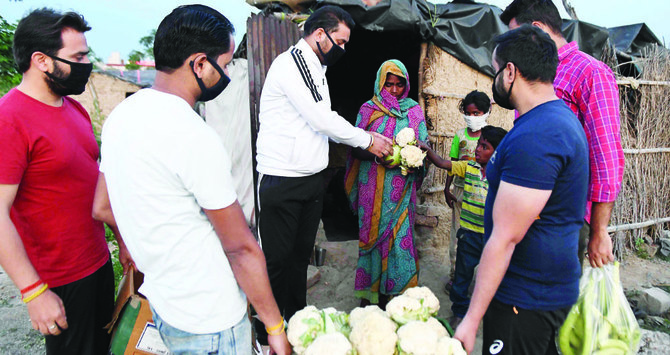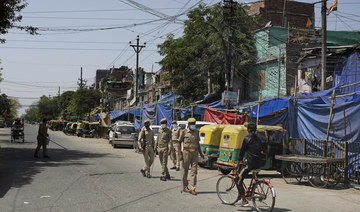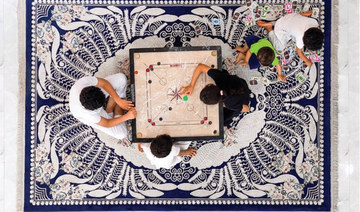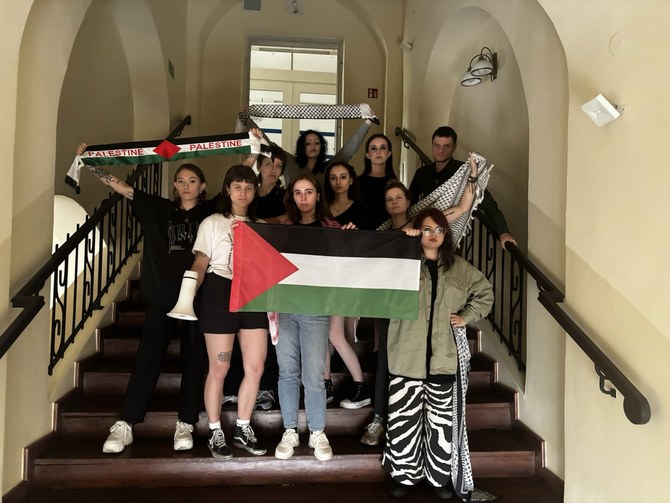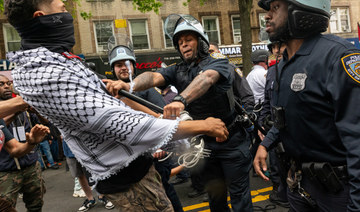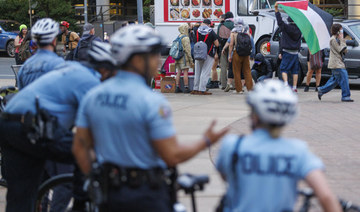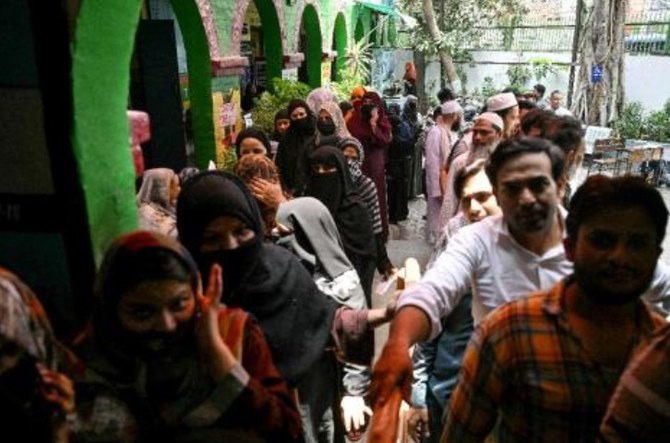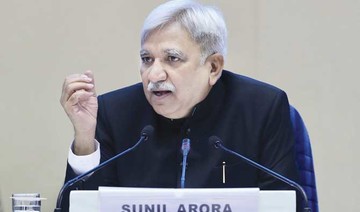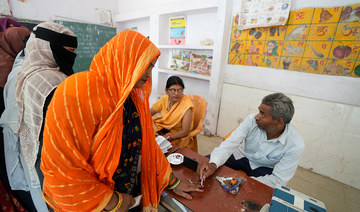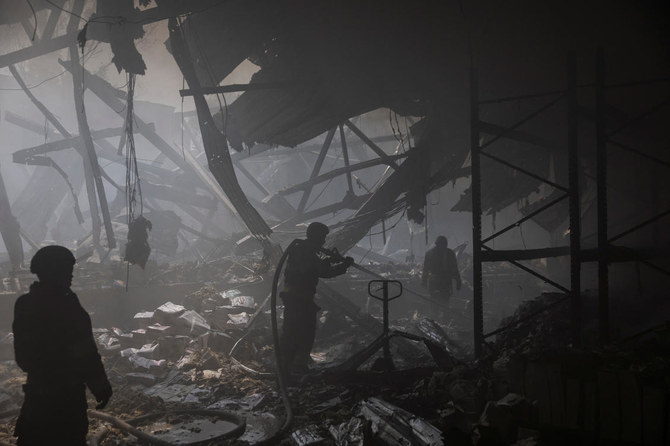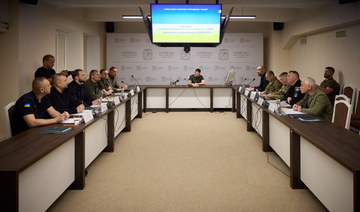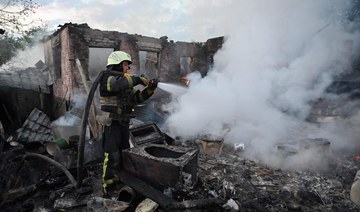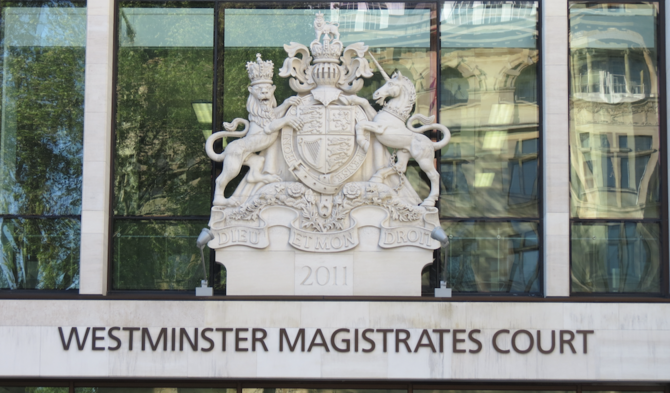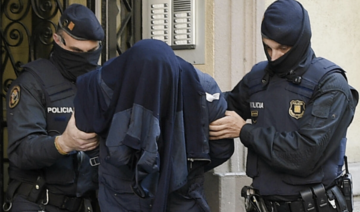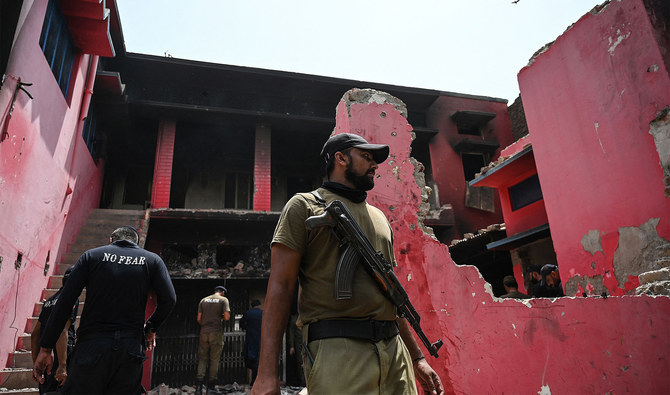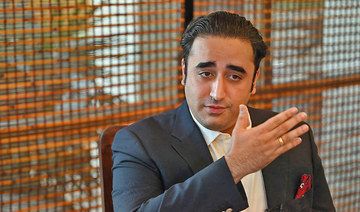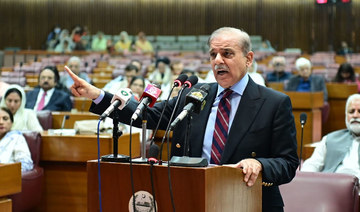NEW DELHI: India could extend its lockdown beyond April 14, the prime minister said Wednesday as the number of coronavirus cases spiked.
“Lifting the lockdown does not seem possible,” Indian Prime Minister Narendra Modi told an all-party meeting, saying that “massive behavioral, social and personal changes” would have to take place. A final call to extend the deadline would be taken on April 11, the meeting heard.
“The priority of the government is to save each and every life,” the prime minister added. “The situation in the country is akin to a social emergency, it has necessitated tough decisions and we must continue to remain vigilant.”
There has been a steady increase in coronavirus cases during the past week and the figure hit 5,500 on Wednesday — double the number from four days ago.
More than 500 new cases were recorded in the past 24 hours — the highest jump since the lockdown started on March 24 — while 25 deaths were reported.
Maharashtra state had the biggest rise in cases with 1,100, and a death toll of 55. The southern state of Tamil Nadu has more than 700 cases, and Delhi has more than 600.
“India has entered the third stage of the pandemic, where the number of patients getting infected exceeds the number of patients getting cured,” Dr. Avinash Bhondwe, president of the Maharashtra branch of the Indian Medical Association, told Arab News. “The number of newly infected patients rises very quickly and the death toll also increases faster. We are experiencing community spread, that’s why many places are sealed off as a protective measure of epidemic control.”
He added that the next seven days would be crucial and, if the graph of newly infected patients kept rising exponentially, the lockdown period may be increased by another four weeks.
There is also a rise in the number of medical professionals getting infected by coronavirus, with a lack of personal protective equipment (PPE) causing anxiety among health workers.
Media reports said the capital needed 3,000 PPE a day but only had a stock of 4,000. Local authorities have demanded 50,000 kits from the central government but have only received an assurance of 27,000.
The Delhi State Cancer Institute closed on Tuesday after 18 healthcare workers became infected.
“As a precautionary measure, we have shut down various facilities of the hospital for sanitization measures,” Dr. B.L. Sherwal, the hospital’s medical superintendent, told the media. “We are making arrangements to move our 19 cancer patients to another private hospital.”
Mumbai’s private Wockhardt Hospital shut on Monday after 26 nurses and three doctors tested positive for the virus.
“We have declared Wockhardt Hospital a containment zone and have removed 30 doctors and nurses from there,” Vijay Khabale-Patil, chief public relations officer of the Bombay Municipal Corporation, told reporters. “We have shifted these Covid-19 suspected cases to the Seven Hills Hospital in Mumbai, where further tests will be carried out.”
Jasminsha Manthadathil, the president of United Nursing Association, accused the hospital of “hiding the truth.”
“The hospital was aware that some patients were coronavirus positive and this information was kept secret from the health workers,” Manthadathil told Arab News.
He added that health workers everywhere were worried because of the lack of PPE, and that a public interest litigation suit had been filed with the Supreme Court to address the issue.
The Resident Doctors’ Association of the All India Institute of Medical Science expressed concern about the backlash it was getting for demanding PPE. It said it was the government’s responsibility to respect medical professionals rather than humiliate them.
“In the absence of PPE, the doctors feel as if they are participating in a suicide squad,” Bhondwe said. “Once a doctor gets infected, his own family as well as all the 30-40 patients, he examines daily are at risk of getting the infection from this doctor. So the doctor may become a cause for the spread of infection.”
Another doctor, Loveleen Mangla, felt a “deep sense of anxiety” in the absence of PPE.
“I have moved my parents to some other house as a matter of precaution,” she told Arab News. “Besides, now the government is making provisions to quarantine a medical professional for two weeks after a week of duty in the hospital.”



